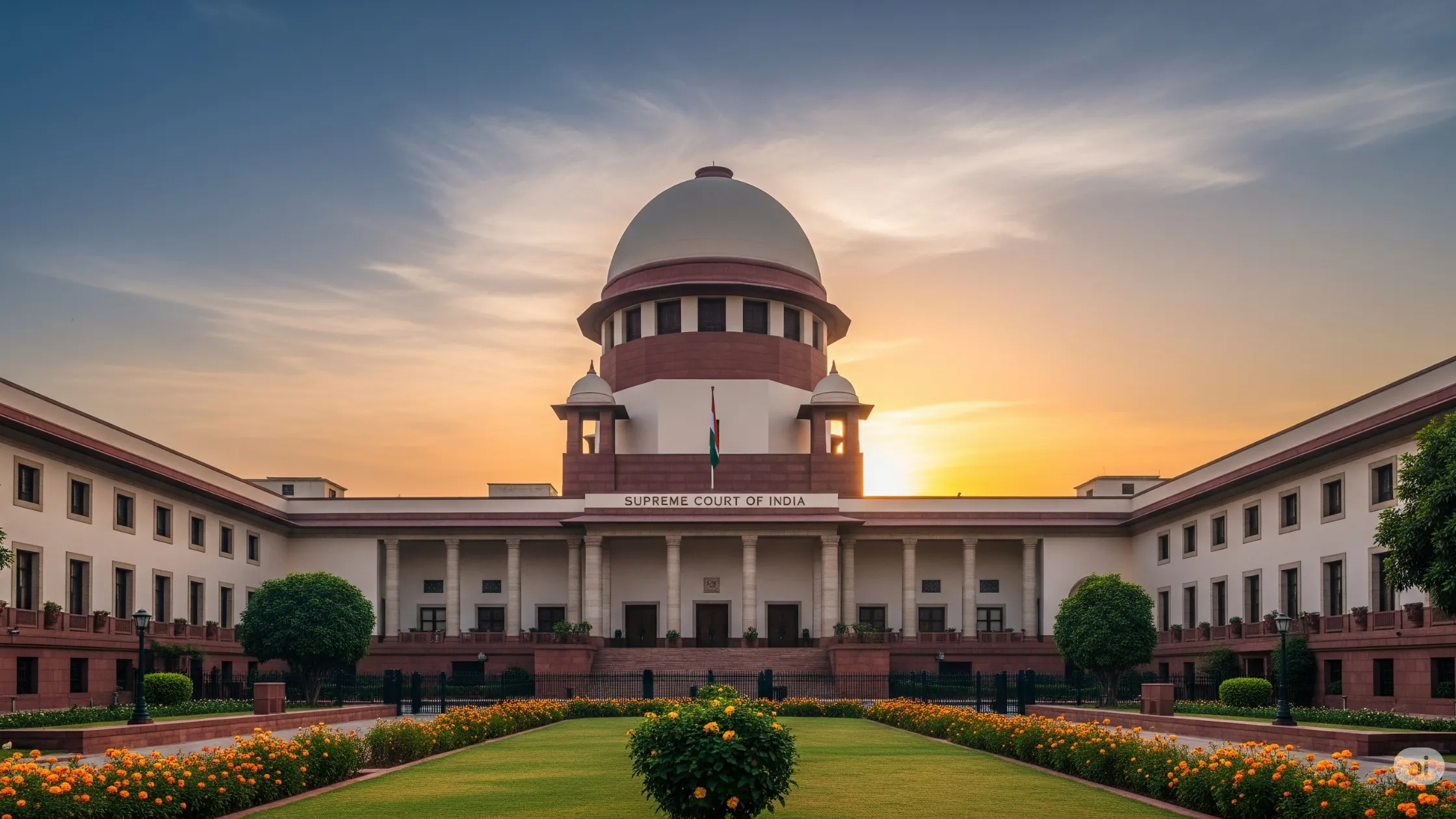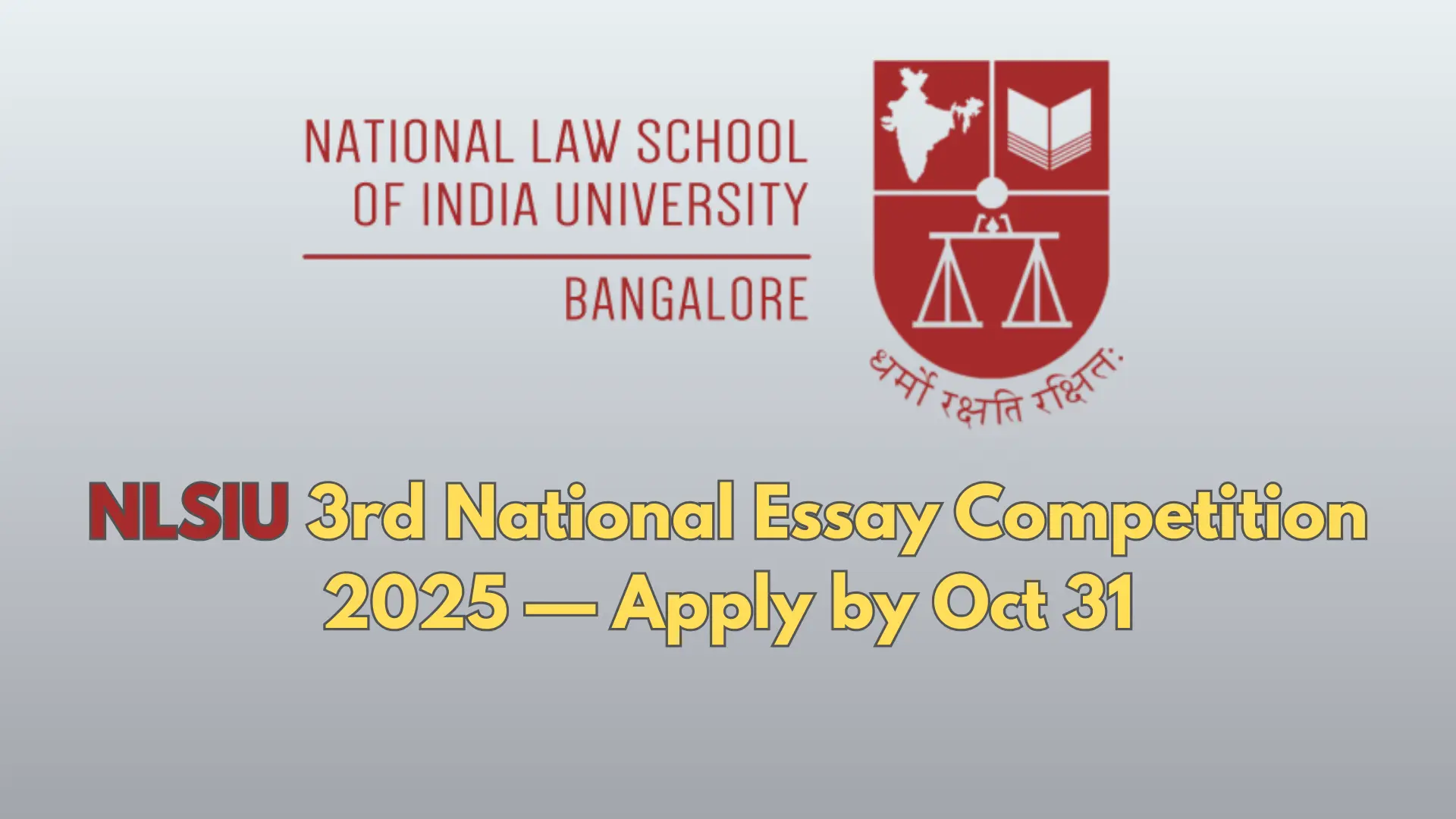On August 14, 2025, the Supreme Court of India declined to entertain a plea seeking modification of its earlier order which made three years of practice as an advocate mandatory for candidates applying to entry-level judicial service.
The applicant had argued that experience as a judicial officer should be treated as equivalent to advocacy practice. However, a Bench led by Chief Justice of India BR Gavai and Justice K Vinod Chandran refused, cautioning that such a relaxation would “open a Pandora’s box.”
The Court advised the applicant to appear for the judicial service examination in his own State instead.
Background of the Case
- The plea was filed in connection with the All India Judges Association case.
- Counsel for the applicant submitted that judicial officers have richer, more practical experience than fresh advocates.
- A comparison was drawn with law clerks, whose court experience can be counted towards the three-year rule.
- The Supreme Court, however, refused to extend the same benefit to judicial officers.
What is the 3-Year Practice Rule?
In May 2025, the Supreme Court ruled that all High Courts and State Governments must amend service rules to ensure that candidates for Civil Judge (Junior Division) posts have at least three years of advocacy experience before applying.
Key Points:
- The rule does not apply to recruitment processes already underway before the ruling.
- Candidates must produce a certificate attested by a senior advocate or a judicial officer verifying their practice period.
- The Court reasoned that fresh law graduates entering directly into the judiciary without any courtroom exposure was lowering the quality of the judicial system.
This rule is not new. It existed in most States until 2002, after which fresh law graduates were allowed to sit for judicial service exams directly. The 2025 judgment reinstated the earlier requirement.
Why Judicial Officers Wanted Relaxation
The applicant in this case argued that:
- Judicial officers already deal with case files, trials, and court procedures.
- Their work involves practical decision-making, which arguably makes them even more experienced than advocates.
- Since law clerks’ experience can be considered, judicial officers too should be given parity.
But the Bench did not agree, pointing out that the judicial service exams have their own eligibility standards and should not be diluted.
The All India Judges Association Case
This matter is part of the landmark All India Judges Association & Ors. vs Union of India & Ors., where the Supreme Court has been dealing with multiple issues regarding:
- Service conditions of judges.
- Promotion policies, including the Limited Departmental Competitive Examination (LDCE).
- Judicial reforms aimed at improving efficiency and independence of the subordinate judiciary.
Impact of the Supreme Court’s Decision
- For law graduates: They now have to complete at least three years of active advocacy practice before sitting for judicial service exams.
- For judicial officers: Their previous service cannot be used as a substitute for advocacy.
- For States: High Courts and State Governments must strictly comply with the Supreme Court’s directions when framing recruitment rules.
Key Takeaways
- The Supreme Court has drawn a clear line — only advocacy experience counts towards the three-year requirement.
- Judicial officers, despite their experience, are not exempted.
- The focus remains on improving quality of judges entering the system.
- The decision reaffirms that practical courtroom exposure is essential for building a stronger judiciary.
Frequently Asked Questions (FAQ)
Q1. What is the 3-year practice rule in judicial service exams?
It requires candidates to complete at least three years of active practice as an advocate before applying for Civil Judge (Junior Division) posts.
Q2. Does experience as a judicial officer count towards the rule?
No. The Supreme Court has clarified that only advocacy experience is valid.
Q3. Why did the Supreme Court reinstate the rule in 2025?
Because allowing fresh graduates without courtroom experience was seen as lowering judicial quality.
Q4. Is this rule applicable across all States in India?
Yes, all High Courts and State Governments must amend their rules to comply.
Q5. What can judicial officers do if they want to apply?
They can appear for judicial service exams conducted in their own State under applicable rules.






